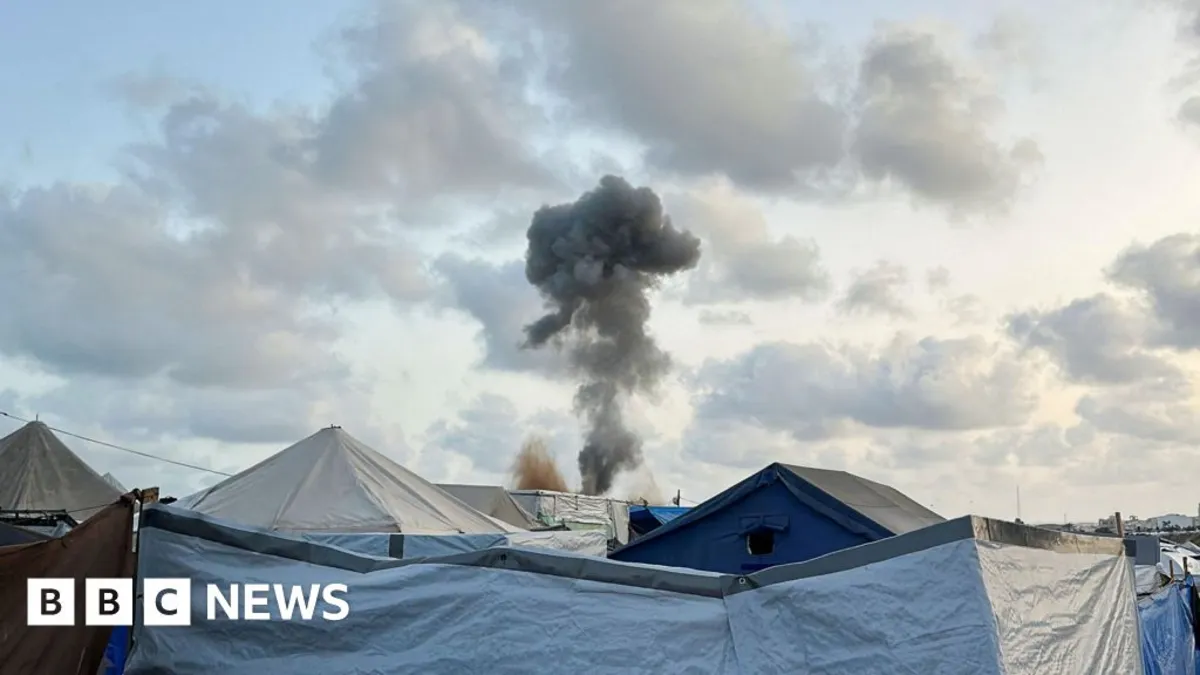
In a devastating escalation of violence, at least 38 Palestinians were reported killed during a series of intense Israeli air strikes across the Gaza Strip within a mere half-hour period overnight, according to Palestinian medical sources. The Israeli warplanes targeted multiple locations, including a school situated in eastern Gaza City, as well as an abandoned fuel station that was providing shelter for displaced families in the Nuseirat refugee camp in central Gaza.
The Hamas-run civil defense agency has reported that rescue teams are encountering significant challenges in reaching the injured due to a critical shortage of equipment and the relentless bombardment. This latest wave of attacks follows Israel's announcement of a sweeping evacuation order for civilians in Gaza, indicating preparations for what they termed an unprecedented military operation.
Among the casualties, ten individuals were killed when an Israeli air strike hit classrooms at the Musa bin Nusayr School, where hundreds of displaced individuals had sought refuge. Local activists in Gaza City confirmed the tragic event, emphasizing the dire situation for those seeking safety. In a separate incident in central Gaza, 15 people lost their lives due to a strike on tents located at the abandoned fuel station in Nuseirat.
Additionally, local journalists reported that an air strike on the Abu Samra family's three-story home in central Deir al-Balah resulted in the deaths of 13 Palestinians. The violence didn't stop there; Israeli jets launched ten air strikes on the Shujaiya neighborhood in eastern Gaza City, with reports describing the blasts as causing tremors reminiscent of an earthquake. These strikes are believed to have been aimed at Hamas's network of underground tunnels, which are a critical component of the group's operational capabilities.
The ongoing violence has drawn international scrutiny, with leaders from the UK, France, and Canada issuing a joint statement cautioning against Israeli Prime Minister Benjamin Netanyahu's intentions to assert control over all of Gaza. Netanyahu dismissed the statement as a significant victory for Hamas, reflecting the complex geopolitical implications of the conflict.
In a bid to alleviate some of the humanitarian suffering, Israel announced it would permit a limited amount of food supplies into Gaza, effectively ending an 11-week blockade. However, United Nations aid chief Tom Fletcher described this measure as a mere "drop in the ocean" compared to the overwhelming humanitarian needs faced by the population.
This surge in violence has its roots in the Hamas-led attacks on southern Israel that occurred on October 7, 2023, leading to approximately 1,200 deaths and 251 people taken hostage. As of now, around 58 hostages remain in Gaza, with reports indicating that up to 23 of them are believed to be alive. The toll on the Palestinian population has been staggering, with the Hamas-run health ministry reporting that at least 53,486 Palestinians have lost their lives during Israel's military campaign in Gaza.
The situation remains fluid and continues to evolve, with both humanitarian and military dimensions requiring urgent attention from the international community as the conflict unfolds.